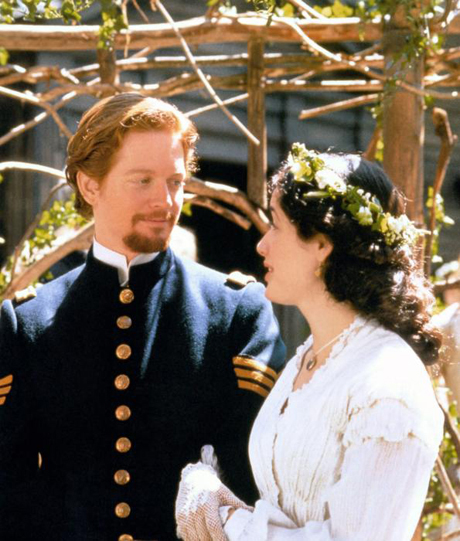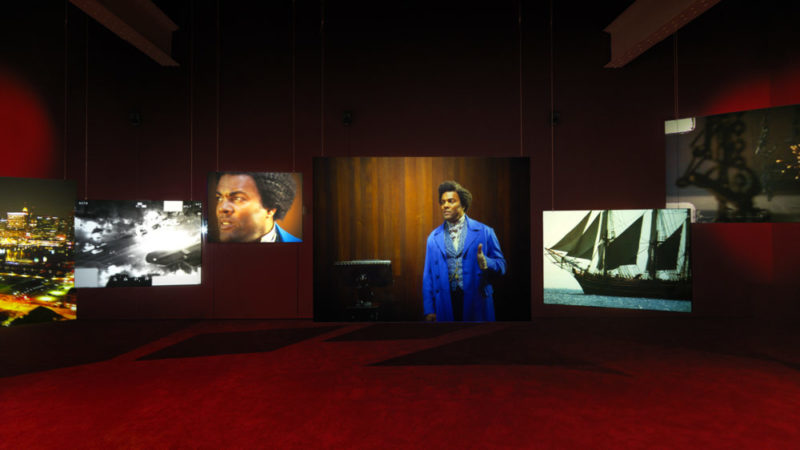
Isaac Julien’s “Lessons of the Hour” and the Many Visions of Frederick Douglass
Hired out to the brutal Edward Covey, a young Frederick Douglass worked to exhaustion during the week and spent Sundays “in a sort of beast-like stupor, between sleep and wake, under some large tree,” alternating between flashes of “energetic freedom” and “mourning,” he wrote in his Narrative. Beyond the woods, ...
Read More
Read More
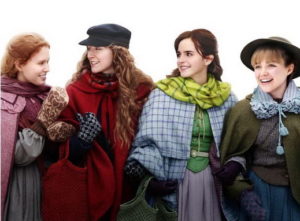
Castles in the Air: A Review of Greta Gerwig’s Little Women
Impatient for Greta Gerwig’s Little Women to come out, I watched the 1994 movie again to bide my time. Susan Sarandon (Marmee) and Winona Ryder (Jo) steal the show, delivering the movie’s most memorable lines critiquing Victorian gender expectations, such as when Marmee dismisses a neighbor’s concerns about her daughters’ ...
Read More
Read More

Poetry Not Yet Written: Revisiting Glory Thirty Years Later
Glory begins as so many Civil War films do: the sun rises on a vast battlefield, brave Union men march into war, and a ferocious battle ensues, American and Confederate flags billowing in the background. Despite its adherence to well-worn tropes, however, Glory tells a tale that is often obscured ...
Read More
Read More
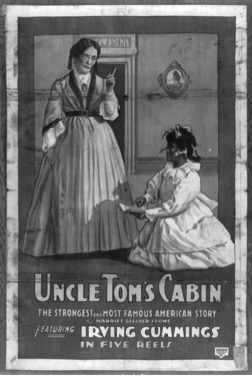
Utilizing Film in Our Courses on Slavery and the Enslaved
Teaching the history of slavery in the United States well, like teaching any complex topic mired in historical mythologies and mixed public interests, is a daunting task. Pedagogical approaches to slavery have to face off against centuries of public misconceptions and avoidance. I constantly try to engage and inform students ...
Read More
Read More
Editor’s Note: September 2018 Issue
The September issue of The Journal of the Civil War Era will soon be arriving in your mailboxes. For a preview of the excellent work within its pages, see our editor's note reprinted below. This volume combines exciting new work in the military history of the Civil War with essays ...
Read More
Read More
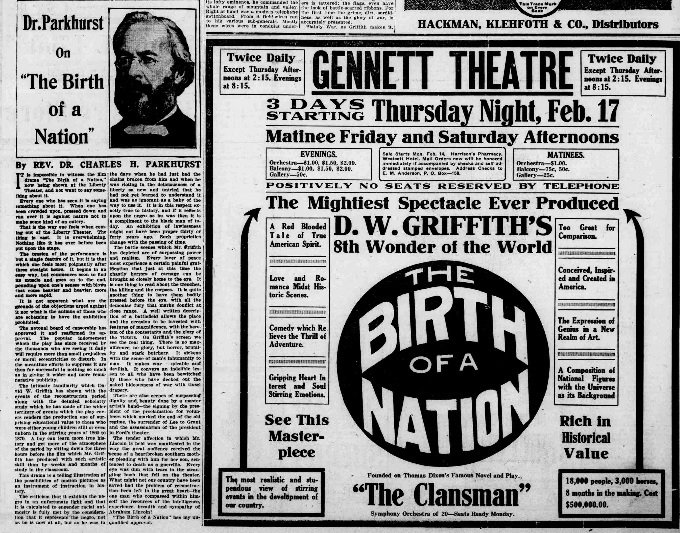
Outrageous Inaccuracies: The Grand Army of the Republic Protests The Birth of a Nation
When the motion picture film The Birth of a Nation was released in 1915, most veterans of the American Civil War were in their seventies and eighties. Membership in the Grand Army of the Republic (GAR)—the largest fraternal organization of Union veterans in the country—had declined by that time to ...
Read More
Read More
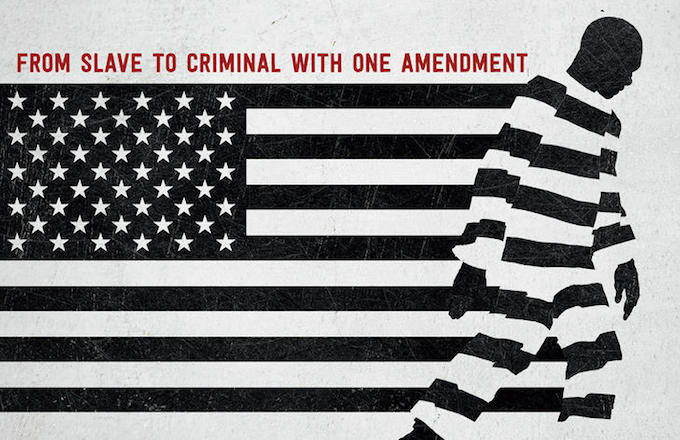
Mass Incarceration And Its Mystification: A Review Of The 13th
This article was originally published by The African American Intellectual History Society (AAIHS) and is reprinted here with permission. Although some of the material falls outside the temporal boundaries of this blog, we believe our readers will find it to be a valuable review, due to its connections to the Civil War. ...
Read More
Read More

Right and Wrong in “The Free State of Jones”: Making Sense of the Civil War Film Tradition
No one quite knows what to make of “The Free State of Jones,” the latest big-budget feature film about the history of the Civil War. Some have praised it as the “final word on racism’s vicious legacy” while others have lambasted it for engaging in “the passive violence of distortion.” ...
Read More
Read More

Aiming for Accuracy: Free State of Jones, Contingency, and the Meaning of Freedom
Early in Free State of Jones a Confederate soldier proclaims he is not fighting for slavery but rather “for honor.” His comrades, including poor Mississippi farmer Newton Knight (Matthew McConaughey), needle him. Considering the "Twenty Negro Law,” Conscription Act, and tax-in-kind law, they point out that their blood only helps ...
Read More
Read More

Coming Soon to a Theater Near You: The Civil War Era
As scholarship on the Civil War era expands, Hollywood, too, has cast a wider gaze at the conflict and its roots. This year, with movies like “Free State of Jones” and “Birth of a Nation,” filmmakers continue to explore the struggles beyond the battlefield but still central to the war ...
Read More
Read More
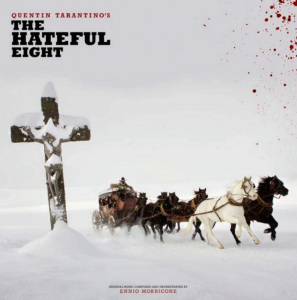
Hateful and Forgetful: Tarantino’s Latest Chooses Gore over Racial Commentary
Is Minnie's Haberdashery, the one room stagecoach stop in which all but a few scenes of Quentin Tarantino's The Hateful Eight take place, the director's version of hell? If so, hell is a cold place of contradictions, unexpected alliances, violence, vulgarity, and truly bad coffee. Stuck in Wyoming blizzard with ...
Read More
Read More
